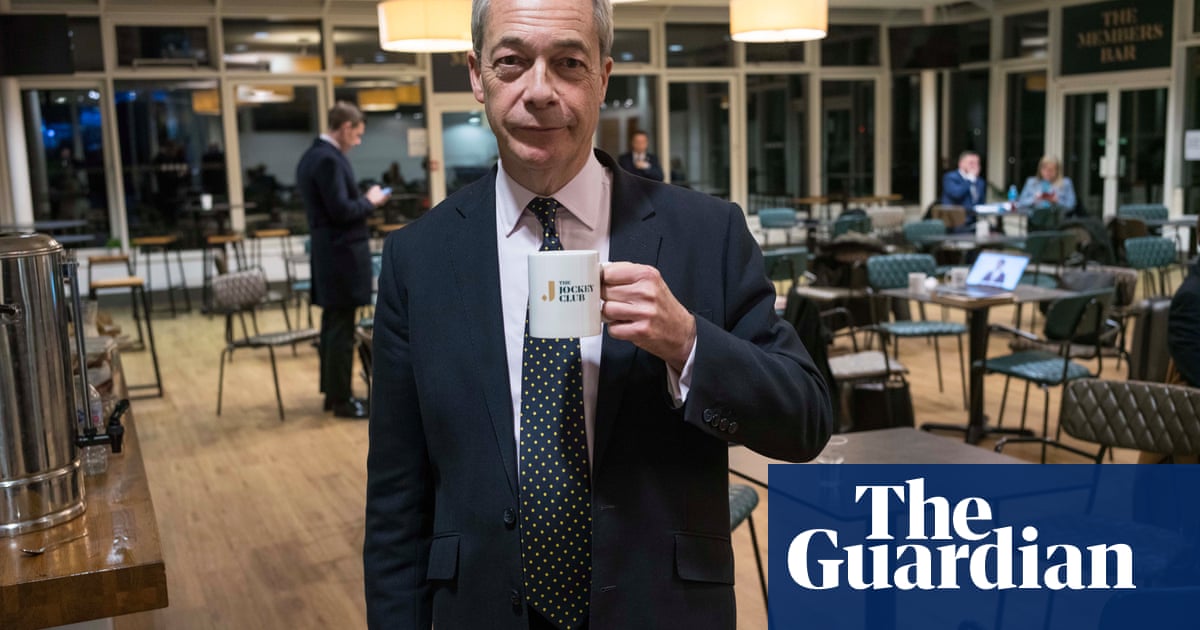For months they called him an authoritarian, an existential threat, even a fascist. But for some Democrats, it seems, none of these is a deal-breaker when it comes to working with Donald Trump.
As the leaderless party struggles to find its bearings after a devastating election defeat in November, a split is emerging between those who insist on shunning the US president-elect at all costs and those who see merit in cooperation. The dichotomy has left allies frustrated and demanding a coherent plan of attack.
“Donald Trump doesn’t stop being a danger the day after the election just because he won and he doesn’t deserve to be coddled or courted just because he won,” said Shannon Watts, founder emerita of the gun safety group Moms Demand Action. “I’m not saying there’s no room for bipartisanship or collaboration, but it seems abrupt to begin doing that without a clear leader or leaders in the party telling us what the strategy is. That’s the piece that’s missing.”
Watts added: “I’m sure there are Dems who who think it’s great to collaborate, and I’m sure there Dems who think that we shouldn’t give an inch to a fascist. There are also people like me who can be persuaded to understand what the public should be doing, but there’s there doesn’t seem to be an attempt to do that.”
Democrats spent years casting Trump as a fundamental threat who instigated a coup against the US government on January 6 2021 in a failed attempt to overturn his election defeat. Joe Biden warned that Trump was poised to resume his “assault on democracy” and was deploying the “same exact language used in Nazi Germany”.
When John Kelly, Trump’s former chief of staff, and Mark Milley, who served as Trump’s chairman of the joint chiefs of staff, both described the former president as a fascist, Democrats embraced the term. Asked at CNN town hall if she believed that Trump is a fascist, Democratic nominee Kamala Harris replied twice: “Yes, I do.” Later she warned that Trump would be “a president who admires dictators and is a fascist”.
Yet Trump beat Harris anyway on 5 November. In a hugely symbolic blow, he also won the national popular vote at his third attempt. Republicans swept the Senate and House of Representatives too. For Democrats, it was a punch that left many feeling disoriented and seeking answers.
Biden, derided by Trump as the worst president in US history, responded by inviting his rival to the Oval Office, warmly shaking hands and promising a smooth transition. The smiling pair posed for photos with First Lady Jill Biden in the White House grounds. Some praised the move as gracious and designed to ensure respect for the office and democratic process.

Others in the party have also made overtures, for example by indicating their willingness to work with Elon Musk and Vivek Ramaswamy’s cost-cutting “Department of Government Efficiency”. John Fetterman, a Democratic senator for Pennsylvania, has met controversial Trump cabinet nominees Tulsi Gabbard, Pete Hegseth and Elise Stefanik and promised to consider them with an “open mind”.
Democrats are also wrestling with how to block – or in some cases support – the Trump agenda.
The Axios website reported that a small group of senators, including at least two Democrats, have been working on a possible new border security deal. It quoted Democrat Mark Kelly of Arizona as saying: “If there’s willingness to work in a bipartisan way to do some stuff, not only on border security, but on immigration reform, I think it would be great.”
Trump lied relentlessly about the scale of murders and other criminals pouring across the southern border from all over the world. But asked how she would respond to Trump’s plan for mass deportations, New York governor Kathy Hochul said: “Someone breaks the law, I’ll be the first one to call up Ice [Immigration and Customs Enforcement] and say: ‘Get them out of here.’”
Meanwhile Eric Adams, the Democratic mayor of New York, has spoken favourably of some Trump policies and not ruled out switching parties and running as a Republican in future.
Asked by the New Republic magazine if Democrats are flirting with surrender to authoritarianism, Senator Chris Murphy of Connecticut replied: “So I don’t know that I’ve come to the conclusion that we’re preparing for surrender yet. But these are critical moments. And I do think that if you go from now until January 20 and not raise the specter of how dystopian this world could be, then start doing it on January 20, it loses a little bit of credibility.”
Many Democrats do remain sharply critical of Trump, especially as his joint effort with billionaire Elon Musk to scupper a spending bill in Congress this week shoved the government towards a shutdown. But there also risks in providing knee-jerk responses to every Trump outrage in the manic news cycle and losing sight of the bigger picture.
Speaking from California, Watts, who was a Harris campaign surrogate, commented: “I see members of Congress and governors commenting, but I don’t see anyone saying this is the way forward. It seems more like it’s a daily analysis of Donald Trump and his future administration’s actions or behaviors, and many of them signal that we should be alarmed and alert – but no one is telling us what to do with those feelings. It was very clear in 2016 what needed to be done, and that was to resist Donald Trump.”
She continued: “If we truly should be afraid, which is what we’ve been told now for almost a decade, and we are heading into uncharted territories, who is the captain and what is the plan for getting to safe harbor?”
An early test for Democrats will come on 20 January: inauguration day. More than 50 Democratic members of Congress, including civil rights activist John Lewis, stayed away from his first swearing in in 2017. So far more than a dozen have said they intended to boycott his second inauguration, which happens to coincide with Martin Luther King Jr Day.
On one side of the debate, members argue they want to show respect to the office of the president and the peaceful transfer of power. Ro Khanna, a congressman from California, said in a statement: “As I would with any US president, I will be attending the inauguration to honor the American people and our democracy.”
For others, however, the memories of January 6 are still raw and they have no desire to return to the US Capitol steps where a pro-Trump mob ran riot and attacked police. Corryn Freeman, executive director of Future Coalition, an organisation focused on young people, said: “This is someone who was impeached and is an insurrectionist who incited a coup on January 6 to try to prevent a peaceful transition of power.
“I am fully in support of Democrats choosing not to be there for the inauguration, but that does not change the fact that they will have to do the work and do their jobs to figure out ways to pass policy with him as president and figure out how to manoeuvre around him.”
Democrats have to be pragmatic in their approach, according to Freeman, a social activist and political operative based in Florida. “We can believe that he is a fascist all that we want to - and he was elected as the president of the United States. It is our responsibility to work with what we have, and think of creative ways in which we can move political process around what I believe to be the gigantic eyesore that is Donald Trump as president of the United States.”
To cope with this new reality, Democrats have not yet found an obvious figure to step into the shoes of Nancy Pelosi as the principal Trump nemesis. The former House speaker famously stood her ground with Trump in the Oval Office and once tore up his State of the Union address.
Some commentators have called for the Democrats to emulate parliamentary systems by appointing a “shadow cabinet”. Timothy Snyder, a historian at Yale University, said: “Actually have a shadow minister of transportation, a shadow defence secretary and so on. We get out of the they-do-something-outrageous and then we just are shocked by it into they-do-something-outrageous and here’s a much better idea from a much more attractive person.”
Amid a generational struggle in the party, there are calls to promote young House members such as Greg Casar, Jasmine Crockett, Maxwell Frost, Alexandria Ocasio-Cortez and Emilia Sykes. This week, however, Democrats picked 74-year-old congressman Gerry Connolly to lead the party on the oversight committee, turning aside a bid from Ocasio-Cortez, 35, for the job.
Joseph Geevarghese, executive director of Our Revolution, a progressive political organising group, said: “There was there was an opportunity for the Democrats in Congress to elevate one of the most popular young electeds as the counterpoint to Trump and they fumbled it.
“It’s political malpractice to sideline a bold progressive voice who is working class and can call the question on Trump’s working class bona fides, because that’s what oversights fundamentally going to be about: Trump and the oligarchs and the corporate class taking reins of government.”
Democrats’ search for a road out of the wilderness is taking place against a backdrop of capitulation to Trump by business and tech elites and a seemingly muted resistance movement – at least for now. But longtime opponents of the president-elect are urging the party not to succumb to Trump fatigue.
Tara Setmayer, a former Republican communications director on Capitol Hill, said: “It’s clear that there needs to be fresh blood, and the Democrats need to figure out who they are as a party sooner rather than later because you cannot build an effective opposition if you’re in disarray.”
She added: “The Democratic party should be harnessing the collective anger of the American people who are not OK with Donald Trump and Maga’s retribution agenda. The American people obviously want people who will fight for their them. It’s up to the Democrats now to not only fight for them but to fight for our democracy.”

.png) 2 weeks ago
6
2 weeks ago
6













































